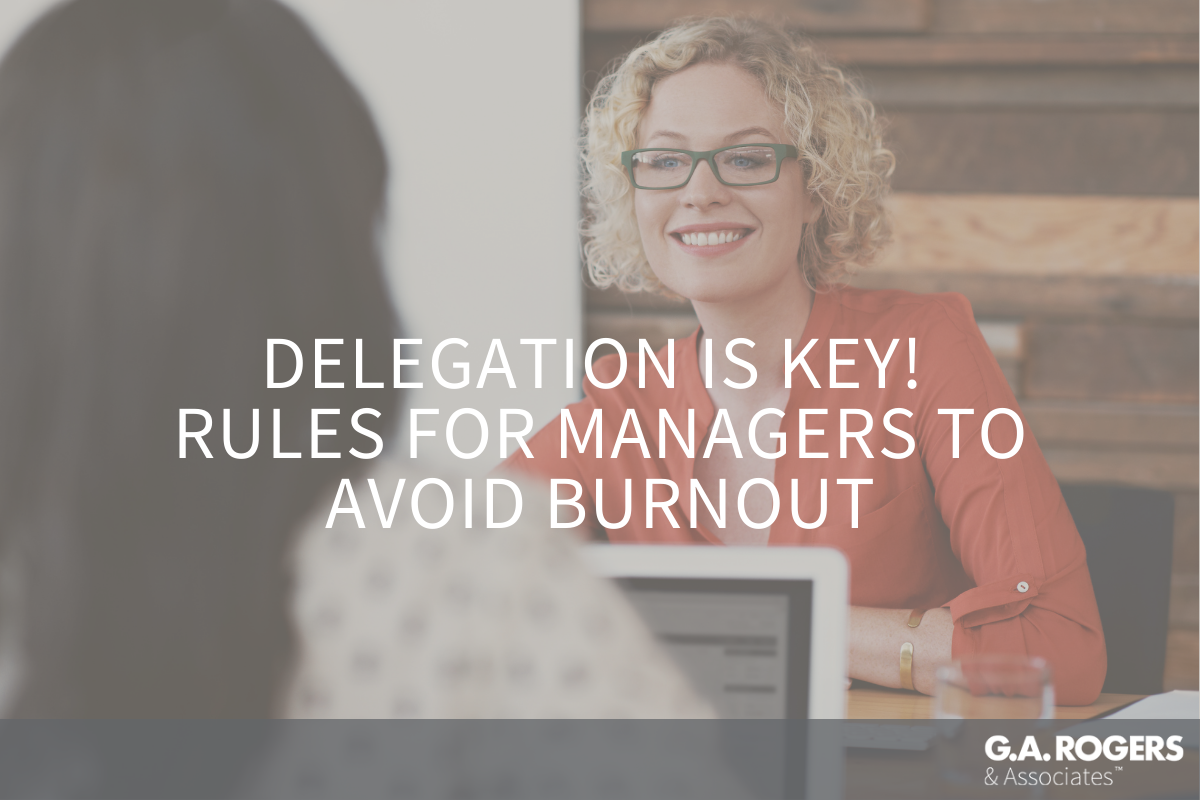Delegation is Key! 3 Rules Managers Should Follow to Avoid Burnout

Manager burnout is a problem that companies need to take seriously. Managers have to deal with a range of problems that arise with their workers – employees who are not performing as they should, those who feel unappreciated, angry, depressed, or just unhappy.
The manager has to work with all of these different personalities and somehow attempt to mold them into a motivated, cohesive team. Managers need to develop goals for the group and help their team achieve those goals. Managing people is one of the most difficult tasks in the workplace, leading to burnout. Here are some things managers can do to deal with burnout.
1. Take breaks
Managers work long hours. But continually working long hours over extended periods of time is a recipe for burnout. Managers also need to maintain some semblance of a work-life balance to avoid burnout on the job.
It is also essential to take breaks during the day. Often managers will eat lunch at their desks, but that’s not a good idea. You should try to get away from your desk for lunch.
Try taking short breaks every hour or so. To get the most from your break time, you should do something physical, which will help you to re-energize. Go for a short walk, do some stretching or deep breathing. But the important thing is to get up from your desk and move around.
This will help to clear your mind, improve your mood and increase your energy level.
2. Try finding the cause
If you are feeling fatigued or burned out at work, you should also attempt to find out what is causing the condition to take steps to find a solution. The cause may be some particular problem with your supervisor, a process or a procedure that is dysfunctional, or relationships with your workers. Once you zero in on the cause of your frustration, you will be able to take steps to confront the problem and improve the situation.
3. Delegate
Another prime cause of burnout is attempting to micromanage. By doing this, a manager takes on an increased burden of decision-making that their employees should do. It slows down the workflow by creating a bottleneck, thereby reducing productivity. It also hurts employee morale and reduces the level of trust.
To avoid this problem, managers need to learn how to delegate tasks effectively. To do this, they need to first learn what can and cannot be delegated. For example, something like a performance review is not something you can delegate. But there may be some routine tasks that you know can be done by members of your team.
When delegating, you need to be clear about what you want done, what the objective is. The person you are delegating to needs to know exactly what work they need to complete, the deadline for completion, and how their performance will be measured.
Find The Perfect Match
At G.A. Rogers, we care about our job candidates, our results, and our relationships. We take the time to get to know each one of our candidates, enabling us to make better matches with employers. We treat our people with respect, and establish long-term relationships. Give us a call today to see what we can do for you.



